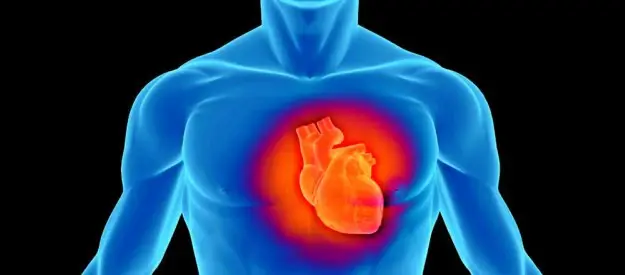Understanding Dilated Heart: Causes Symptoms and Treatment Options
- Shane Yole
- Aug 13, 2025
- 4 min read
Dilated heart, also known as dilated cardiomyopathy (DCM), poses a serious risk to heart health. This condition significantly impacts the heart's ability to pump blood effectively, leading to potential heart failure and other complications. This blog post aims to clarify what a dilated heart is, explore its causes, symptoms, and available treatment options in a straightforward and engaging manner.

What is Dilated Cardiomyopathy?
Dilated cardiomyopathy is a type of heart disease characterized by the enlargement and weakening of the heart's chambers, primarily the left ventricle. As the heart muscle stretches and thins, its ability to contract and pump blood decreases, which can lead to major health issues, including heart failure and arrhythmias. According to the American Heart Association, DCM affects about 1 in 2,500 adults, making understanding this condition essential for prevention and management.
The exact cause of dilated cardiomyopathy varies from patient to patient and can sometimes be unidentified. However, recognizing potential causes is crucial for both prevention and effective management.
Causes of Dilated Cardiomyopathy
Several factors may contribute to the development of dilated cardiomyopathy, including:
Genetic Factors: About 20 to 35% of cases can be traced back to a family history of heart disease. Specific genetic mutations can disrupt normal heart muscle function.
Viral Infections: Infections, such as viral myocarditis caused by enteroviruses, can lead to inflammation in the heart muscle, potentially resulting in DCM.
Alcohol and Substance Abuse: According to studies, chronic alcohol consumption accounts for roughly 30% of DCM cases, as it can lead to direct toxicity in heart cells.
Nutritional Deficiencies: A significant lack of essential nutrients, such as thiamine (vitamin B1), can cause damage to the heart muscle. Thiamine deficiency is often associated with heavy alcohol use.
Autoimmune Diseases: Diseases like lupus or rheumatoid arthritis can result in inflammation of the heart, contributing to the development of dilated cardiomyopathy.
Other Medical Conditions: High blood pressure, diabetes, and thyroid disorders can increase the risk of DCM. For example, obesity has been linked to a higher incidence of heart failure, which is commonly associated with DCM.
Awareness of these risk factors helps individuals take proactive steps in preventing the disease and seeking prompt medical advice if needed.
Symptoms of Dilated Cardiomyopathy
Symptoms of dilated cardiomyopathy can differ widely among individuals and may develop over time. Common symptoms include:
Shortness of Breath: Difficulty in breathing may occur, especially during physical activity or while lying down. In a survey, approximately 70% of patients reported this as a concerning symptom.
Fatigue: Feeling overly tired or lacking energy may become commonplace in those living with DCM.
Swelling: Fluid retention may contribute to noticeable swelling in the legs, ankles, and abdomen.
Irregular Heartbeat: Palpitations or a racing heart can occur due to irregular rhythms.
Chest Pain: Some patients may report sensations of discomfort or pain in the chest.
Prompt medical attention is crucial if you or someone you know experiences these symptoms, as early intervention can lead to better outcomes.
Diagnosis of Dilated Cardiomyopathy
Diagnosing dilated cardiomyopathy typically involves a thorough assessment, including a medical history review, physical examination, and various diagnostic tests. Healthcare professionals may utilize several methods:
Echocardiogram: This ultrasound test provides vital images of the heart, helping assess the heart's size and pumping ability. Studies show that echocardiograms can detect DCM with over 90% accuracy.
Electrocardiogram (ECG): An ECG records the heart's electrical activity and helps identify irregular heart patterns.
Blood Tests: These tests can pinpoint underlying conditions, such as infections or nutritional deficiencies.
Cardiac MRI: This advanced imaging tool offers detailed visuals of the heart and aids in assessing damage severity.
Early diagnosis is essential for effective management and treatment of dilated cardiomyopathy.
Treatment Options for Dilated Cardiomyopathy
The goal of treating dilated cardiomyopathy is to enhance heart function, relieve symptoms, and prevent complications. Options include:
Medications: Various medications can improve symptoms and heart function. Common options include:
ACE Inhibitors: These medications relax blood vessels and lower blood pressure, which can reduce the heart's workload.
Beta-Blockers: These drugs slow the heart rate and enhance heart efficacy, addressing symptoms of fatigue and palpitations.
Diuretics: These help reduce fluid retention, alleviating swelling.
Diet: A diet rich in vegetables, fruits, lean proteins, and whole grains while low in salt and saturated fats can support heart health.
Exercise: Engaging in regular physical activity, as advised by a healthcare provider, can improve heart function and overall health.
Avoiding Alcohol and Smoking: Eliminating or reducing these substances can drastically improve heart health.
Lifestyle Changes: Adopting a heart-healthy lifestyle is beneficial. Consider:
Device Therapy: In some cases, medical devices such as implantable cardioverter-defibrillators (ICDs) or cardiac resynchronization therapy (CRT) may be necessary to regulate heartbeats and improve efficiency.
Surgery: In critical cases, surgical interventions like heart transplantation may be considered.
Close collaboration with a healthcare team is vital for individuals with dilated cardiomyopathy to determine the best treatment plan tailored to their needs.
Living with Dilated Cardiomyopathy
Navigating life with dilated cardiomyopathy can be demanding, yet many individuals manage to lead fulfilling lives with proper support and care. Essential strategies include regular follow-up appointments, adhering to treatment plans, and making positive lifestyle changes. Additionally, support groups and counseling can offer emotional relief by connecting individuals facing similar challenges.
Staying informed about your condition and advocating for your health empowers you to manage dilated cardiomyopathy effectively.
A Healthier Heart is Within Reach
Dilated cardiomyopathy is a serious heart condition that demands attention and proper management. Understanding its causes, symptoms, and treatment options is essential for individuals at risk or diagnosed with the condition. By focusing on early diagnosis and comprehensive treatment plans, patients can significantly improve their quality of life. If you suspect you or someone you care about might be experiencing symptoms of dilated cardiomyopathy, do not hesitate to seek medical advice. Prioritizing heart health can make a meaningful difference in your life.










Comments